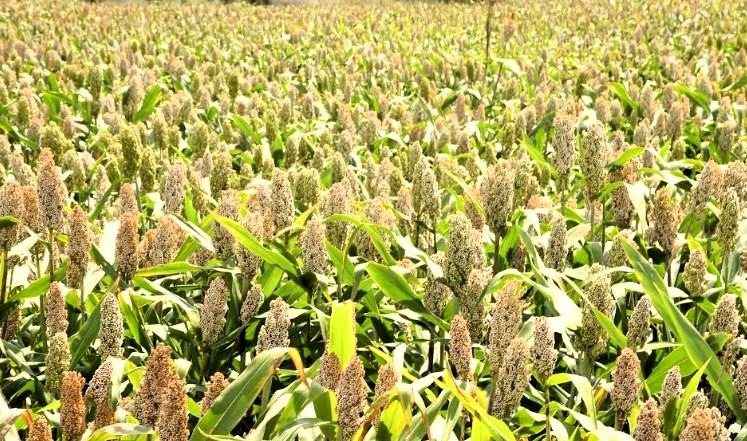Once known for insecurity, cattle rustling, and displacement, the Kerio Valley has now become a thriving agricultural hub. Just two years ago, the region’s fertile land lay idle as families fled conflict. Today, lush fields of sorghum and maize stretch across the valley, symbolizing peace, irrigation, and structured agribusiness.
The Kamsiwet Irrigation Scheme in Marakwet West, which had nearly collapsed due to years of insecurity, has been revived. Established in the late 1980s, the 150-hectare farm is now producing tonnes of sorghum for both local consumption and commercial markets. Farmers report impressive harvests, generating millions in revenue, securing food for their households, and ensuring that children stay in school.
Women in the valley are finding empowerment through farming, moving from dependency to financial stability. Many now afford school fees, health insurance, and improved living standards. For young people, agriculture and agribusiness have become a source of employment and entrepreneurship. A number of youth are running businesses such as maize shelling, earning daily income that supports their education and livelihoods.
The benefits extend to schools, where improved nutrition and reduced absenteeism have been noted. Teachers who also engage in farming say the schemes have enhanced both education and household income, while security has improved as more residents are occupied with productive activities.
The economic impact is evident. Farmers at Kamsiwet harvested more than 350 tonnes of sorghum this season, injecting millions of shillings into the local economy. Investments in water infrastructure have opened opportunities for contract farming with major companies, linking local farmers to steady markets. Nearby, the Chepkum Irrigation Scheme has also been rehabilitated, producing maize worth millions each season and supporting thousands of households.
To reduce post-harvest losses, modern cereal stores have replaced temporary tents, while agro-processing initiatives such as the automation of the Tot Mango Factory promise to boost farmer incomes further. Local leaders emphasize that the transformation is not just about today’s harvests but also about long-term sustainability and food security.
Where gunfire once echoed, the valley now hums with the sounds of tractors and shellers. Kerio Valley’s story illustrates how peace, irrigation, and structured farming can transform a conflict zone into a thriving economic hub, securing livelihoods and restoring dignity to communities.

